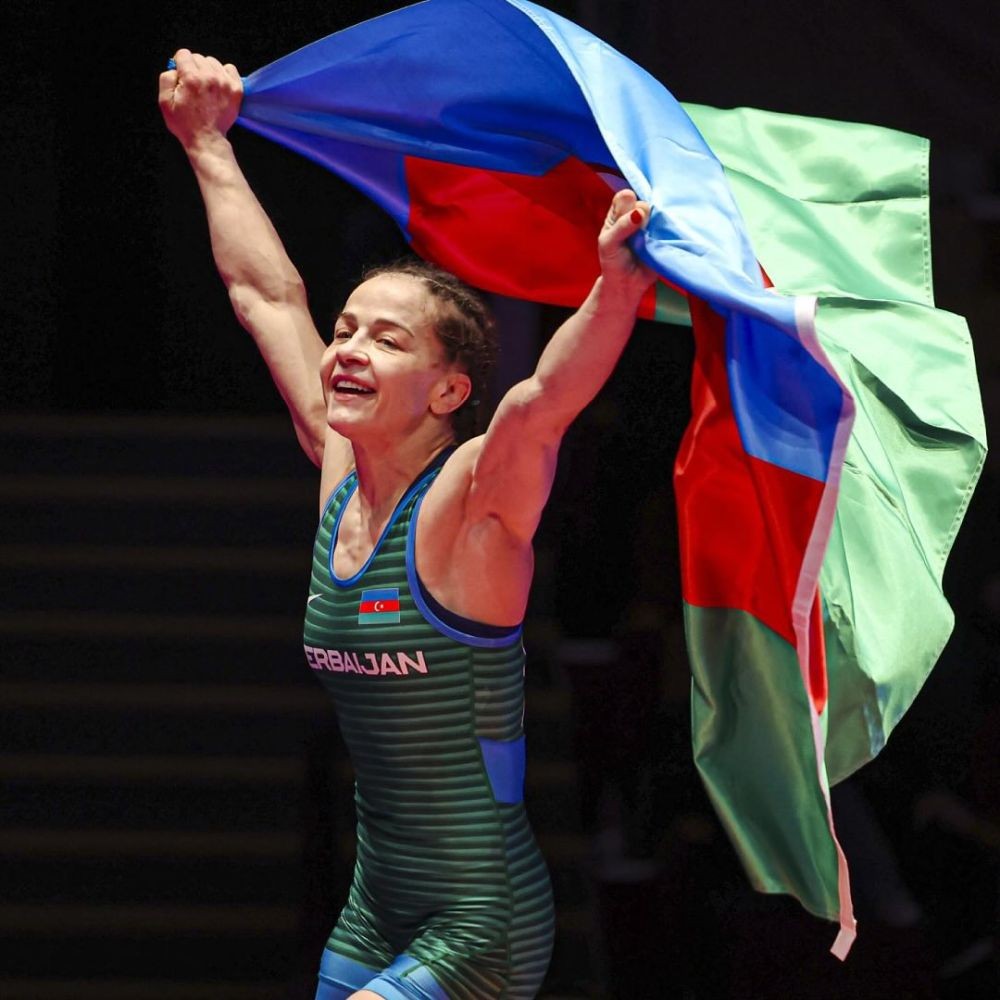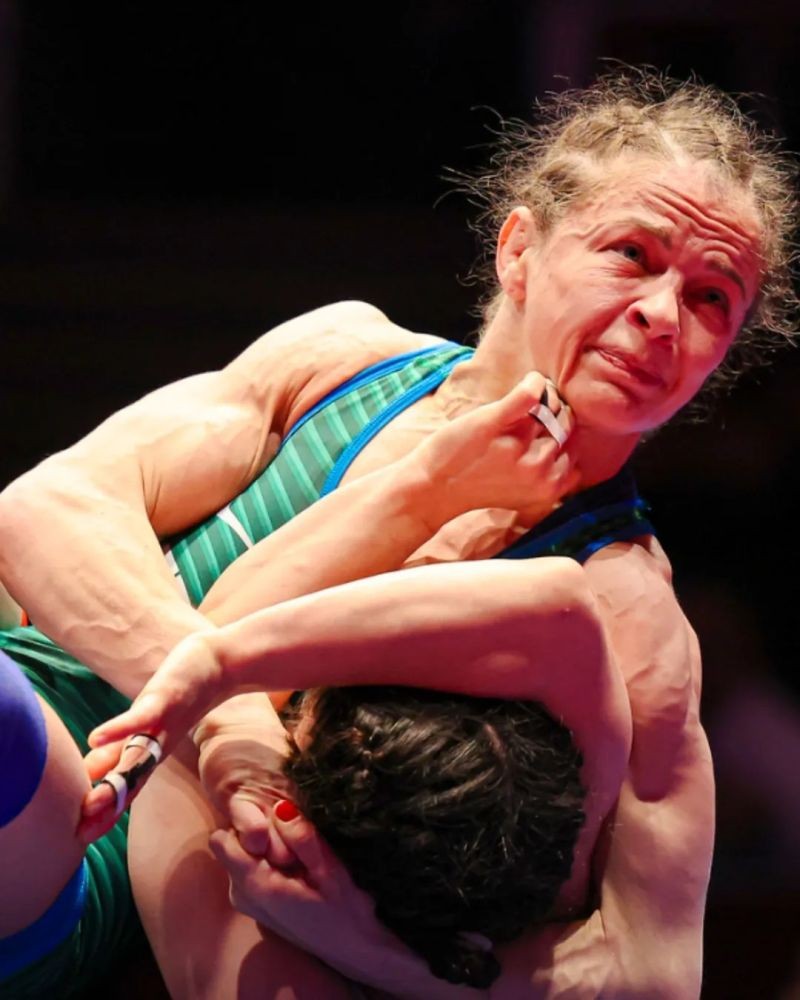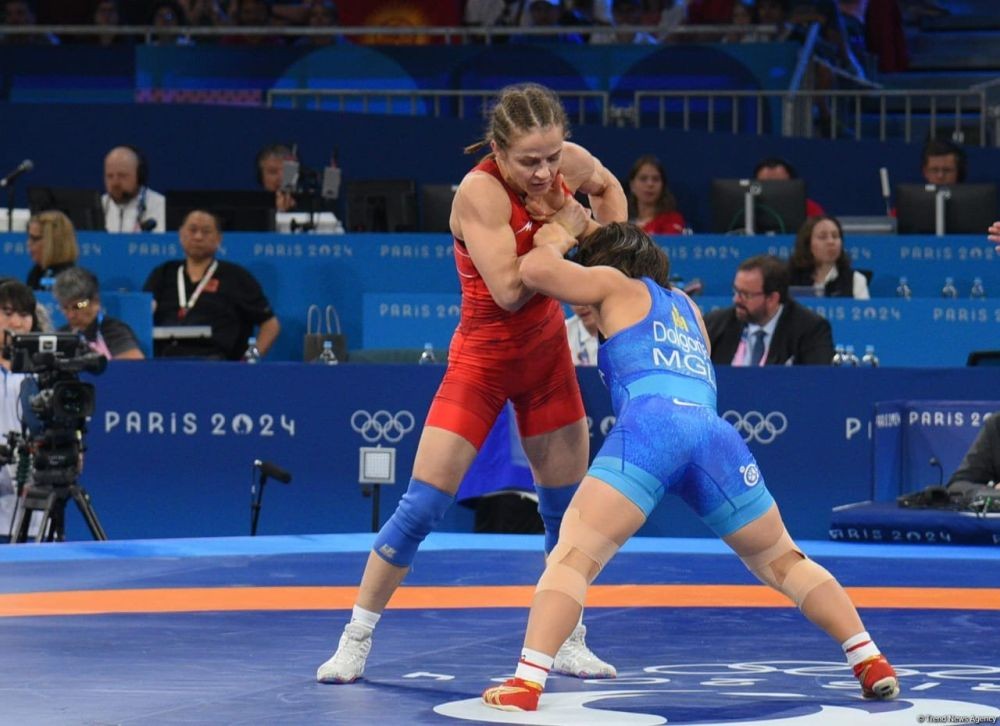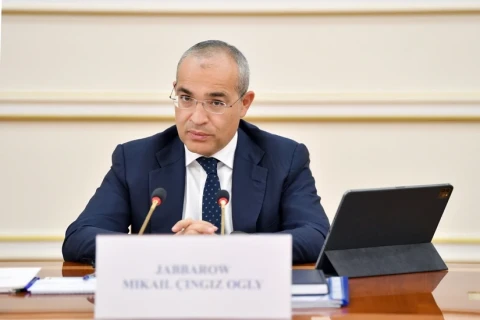Four-time Olympic medalist, two-time World Champion, ten-time European Champion, and the only female wrestler to compete in five Olympic Games, Mariya Stadnik, who now serves as the Women's Wrestling Coordinator at the Azerbaijan Wrestling Federation, spoke to Offsideplus.az in an exclusive interview.
“I’VE HAD MY FILL OF WRESTLING”
– You’re originally from Lviv, Ukraine, a city known for its deep cultural roots. Shall we start the conversation in Ukrainian?
– Gladly. That sounds lovely.
– I hope speaking Ukrainian will make our conversation feel more sincere. Let’s begin with language. You've lived in Azerbaijan for quite a while now. Can you speak Azerbaijani?
– Unfortunately, I don’t speak it fluently yet. But I do understand much more now. Still, when I try to speak, I feel like I don’t pronounce things correctly—it sounds funny. People don’t really get what I’m saying. I moved to Azerbaijan from Ukraine with my children three years ago because of the war. Before that, I lived in Ukraine permanently and only came to Baku for competitions. I mostly communicate with people here in Russian.
– Let’s move to the sports questions. How would you assess the performance of Azerbaijan’s women's wrestling team at the European Championships two weeks ago?
– We couldn't participate with a full lineup as we don’t yet have wrestlers in every weight class. Still, despite sending only four athletes, we managed to win a medal. Considering the high competition level at the European Championships, even one medal is a success. That said, it could have been gold instead of bronze. Jala Aliyeva had a real shot, but due to an injury, the doctor wouldn’t let her continue in the semifinals.
– Overall, were you satisfied with the team’s performance?
– You can't expect people to jump higher than they’re capable of. The athletes achieved what they were able to. Again, Jala was very close to gold. Ruzanna Mammadova, on the other hand, is still young. I don’t think she necessarily needed to be at the European Championship, but the coaches wanted to test her and help her gain experience. She shows great promise in youth competitions. Although she lost her first match, that experience was valuable. Sometimes, taking part is more important than winning when it comes to development.
– For the first time, you watched such a prestigious tournament not as a competitor but as a federation official. How did that feel?
– I think I’ve had enough of wrestling. Watching the matches, I didn’t feel the urge to be back on the mat. When I saw the girls cutting weight and getting nervous before matches, it reminded me of my own stressful moments. I thought to myself, “I’m glad that’s behind me” (laughs). I felt totally different emotions—I was genuinely happy for the girls. Competing was easier for me. I knew my strengths and could sense whether I’d win or not. But as a coach or official, it’s harder because you don’t know what’s going through the athletes’ minds. Women’s wrestling, especially, is full of surprises. You can win today and lose easily tomorrow.

“I WANTED TO RETIRE IN 2021”
– After retiring, why didn’t you choose to become a coach?
– It wasn’t about wanting to be a federation official. I asked myself where I could be most useful for the development of women’s wrestling in Azerbaijan. If I became a coach, I’d be tied up with camps and training, leaving no time for broader development work.
– Was becoming a coordinator your idea or the federation’s?
– It was my suggestion. I met with the leadership and said I wanted to contribute to the growth of women's wrestling. I’ve spent my whole life in this sport—I know what I’m doing. They thought it over and we made a mutual decision.
– How long did it take you to decide to retire? You didn’t stop right after the Paris Olympics. There was a bit of a break...
– Honestly, I wanted to retire after the 2021 Tokyo Olympics. I didn’t train for a long time afterward. I traveled, reflected on life. But then the war in Ukraine started. I came to Azerbaijan with my children—initially just for a couple of weeks. As Arestovych would say... (laughs). Soon after, I joined a training camp with the junior team just to support and guide them. One camp led to another…
– How long had you been off the mat?
– About 8–9 months. I had kept up with general fitness, but I had no intention of returning to competition. Then the Islamic Games were approaching, and the federation asked if I’d consider competing. I said “okay,” and that spark returned. I won the gold. With the war ongoing, I couldn’t go back to Ukraine. Then came the European Championships, and I felt ready. After that, the Olympics came around. Everything just kept flowing. I thought, maybe it’s fate giving me a final chance. I didn’t want to regret turning it down—so I competed in my fifth Olympic Games.

“THAT SPARK IN MY EYES WAS GONE”
– And in February of this year, you officially retired…
– Yes, after the Paris Olympics, I wanted a break. I didn’t want to make another emotional decision like I almost did after Tokyo. Life can change quickly. I waited to make a calm, well-thought-out decision.
– You left your wrestling shoes in the center of the mat—a symbolic gesture. You weren’t forced to retire. Could a comeback still be on the table?
– (laughs) You know what they say: never say never. So, I won’t rule anything out. But honestly, I doubt it. Right now, I’m motivated to help the women’s team succeed.
– Is it a physical limitation?
– Physically, I’m still strong. Even at the Paris Olympics, I was in good shape. But there were moments of fatigue and a slight loss of speed. I lost to athletes from Ukraine, Korea, and Mongolia last year—more than I’d ever lost before. It was time. After the 2016 Rio Olympics, something inside me dimmed. I lost the final with five seconds left, even though I gave that Games everything I had.
– It sounds like wrestling never gave you the reward you truly deserved.
– Exactly. I gave wrestling my life, time with my kids—everything. And I lost that final. Yes, I went to Tokyo five years later, but deep down, I’ve carried a sense of disappointment ever since. Wrestling never gave me that Olympic gold.

“SOMETIMES I TELL TOGHRUL ASGAROV TO BE TOUGHER ON THE GIRLS”
– How would you describe Toghrul Asgarov’s work as acting head coach of the women’s national team?
– He’s young and still learning, but his coaching philosophy is solid. He just needs to learn how to better convey his knowledge to the girls. The ones who understand him are getting results. Others struggle because they’re not quite at his level yet—he’s very advanced.
– Do you ever criticize him during training sessions?
– Not criticize—advise. I understand the psychology of female athletes better. Girls are different from boys. You tell boys once—they do it. Girls can take things personally, they might cry. So I share my experience with him.
– Does Toghrul have the patience for this role?
– Yes, he’s extremely patient. Sometimes I even tell him, “Toghrul, you’re too soft—be a bit tougher!” I’m probably the one who gets angrier during training. Toghrul is calm and respectful. His approach is to help the girls realize that wrestling is their choice and their future. He says, “If someone doesn’t want it, I won’t force them.” Maybe that’s good, but teenagers—especially 15–16-year-olds—need structure. The weather’s nice, they want to go out and have fun, but they need discipline.
– Last week, Azerbaijan held its first-ever national women’s wrestling championship for ages 15 and 17 in Astara. What are your thoughts?
– I first came to Azerbaijan in 2007, when local girls weren’t yet involved in wrestling, so foreign athletes like me were brought in. We were role models. Now, 18 years later, we finally held a national championship—and that makes me incredibly happy. We had enough local girls to organize a real competition. In the past, there were never more than one or two girls in each weight class.
– It seems some weight classes still lacked depth this time around?
(To be continued...)
Idman.biz













